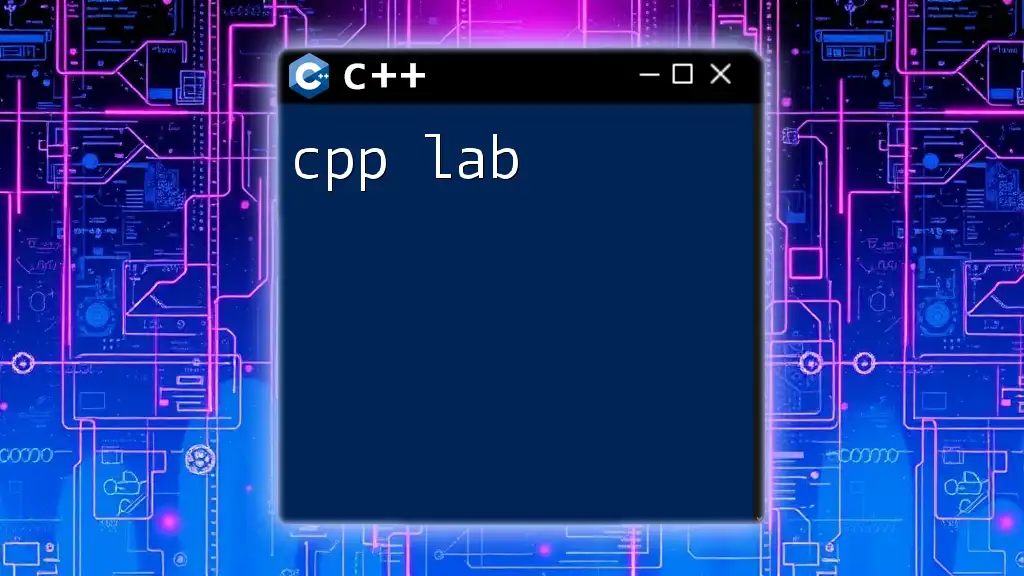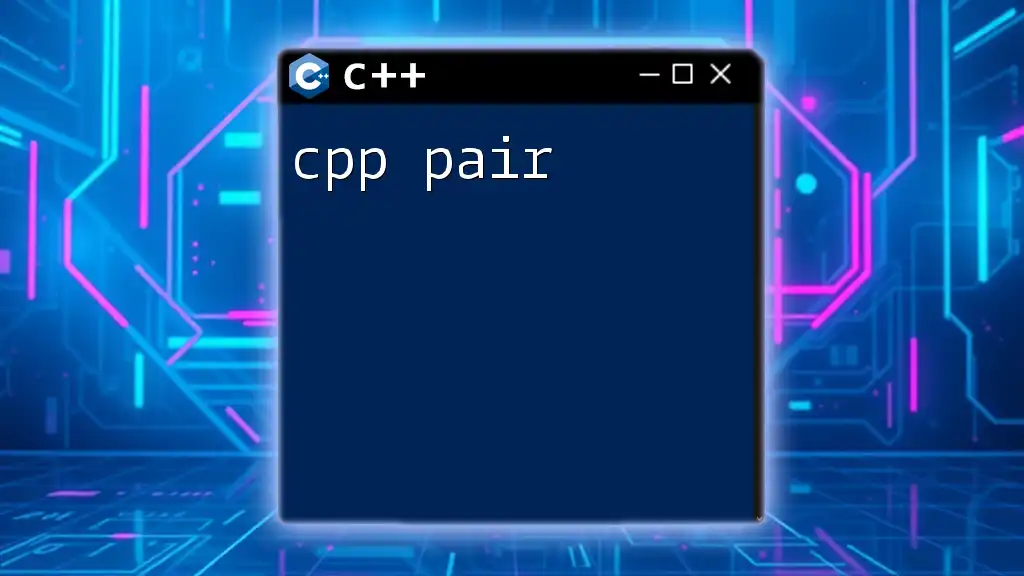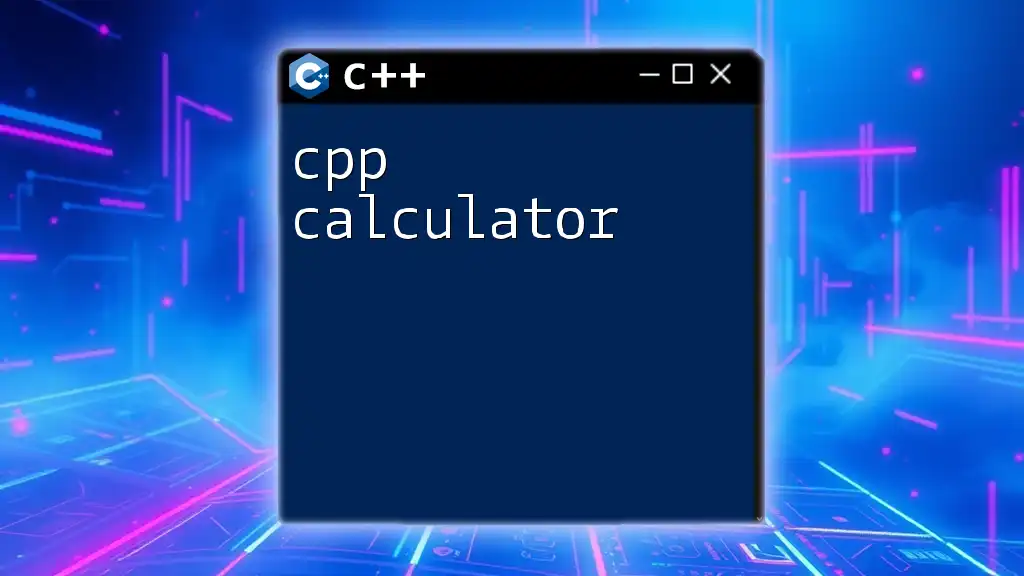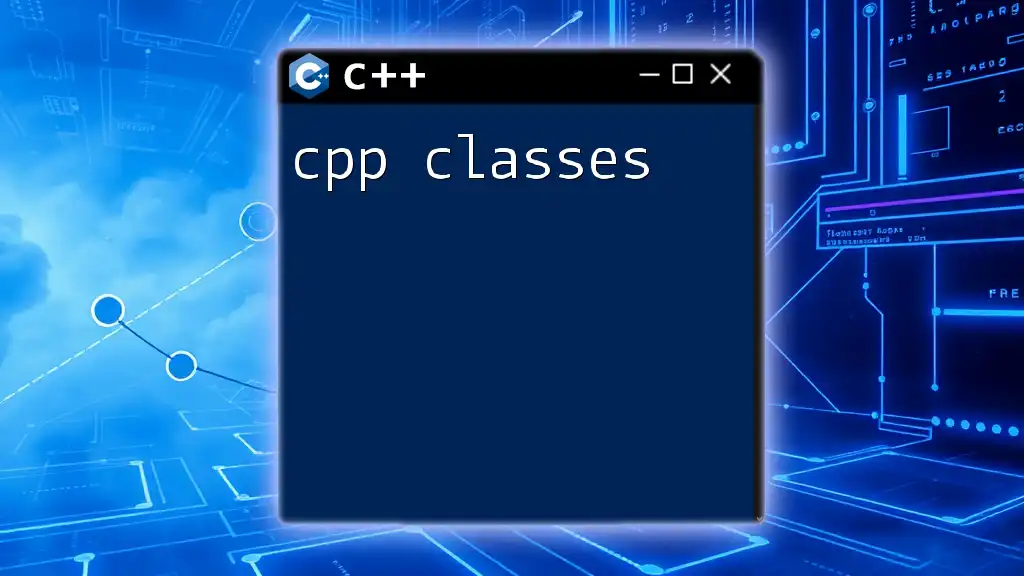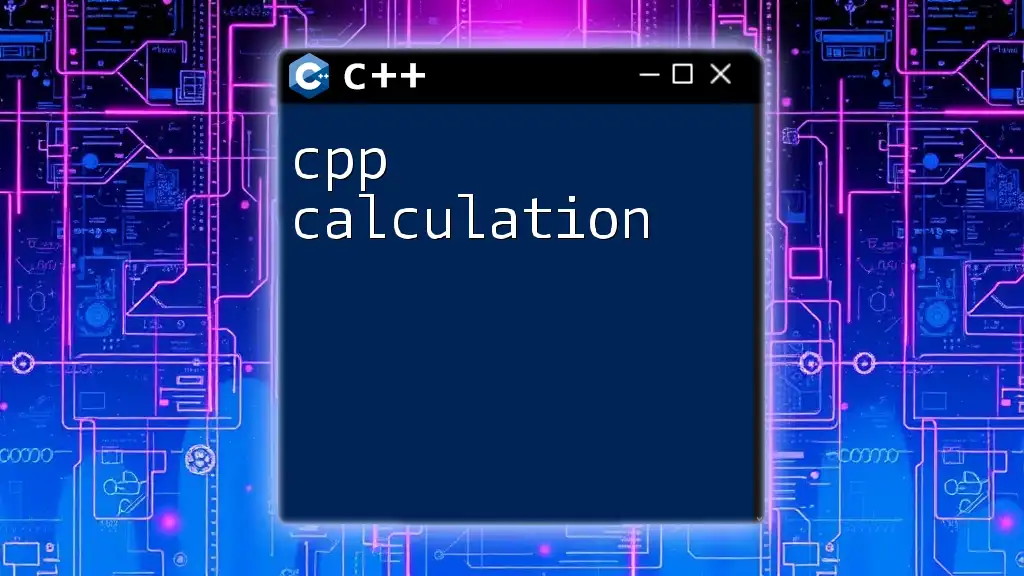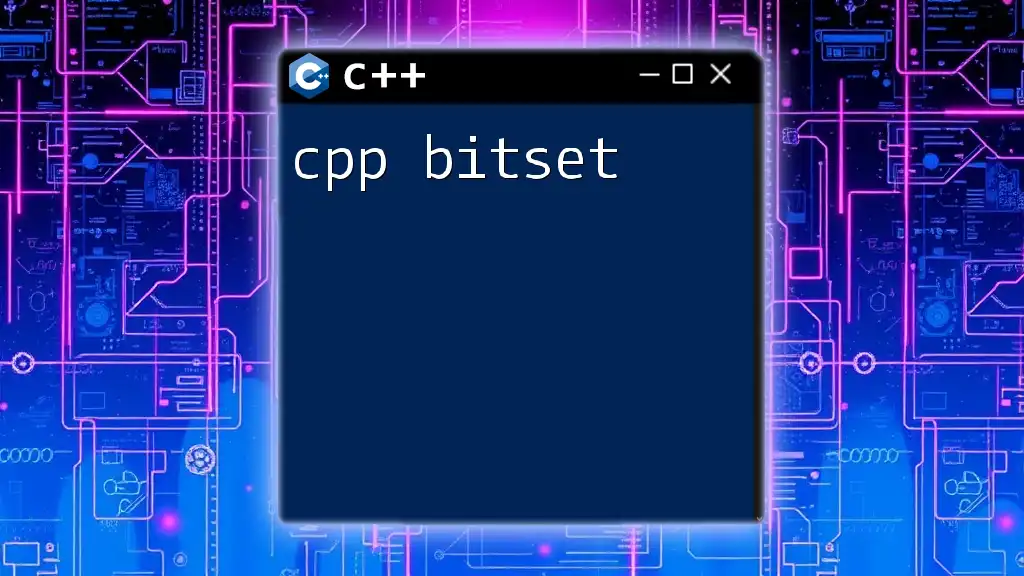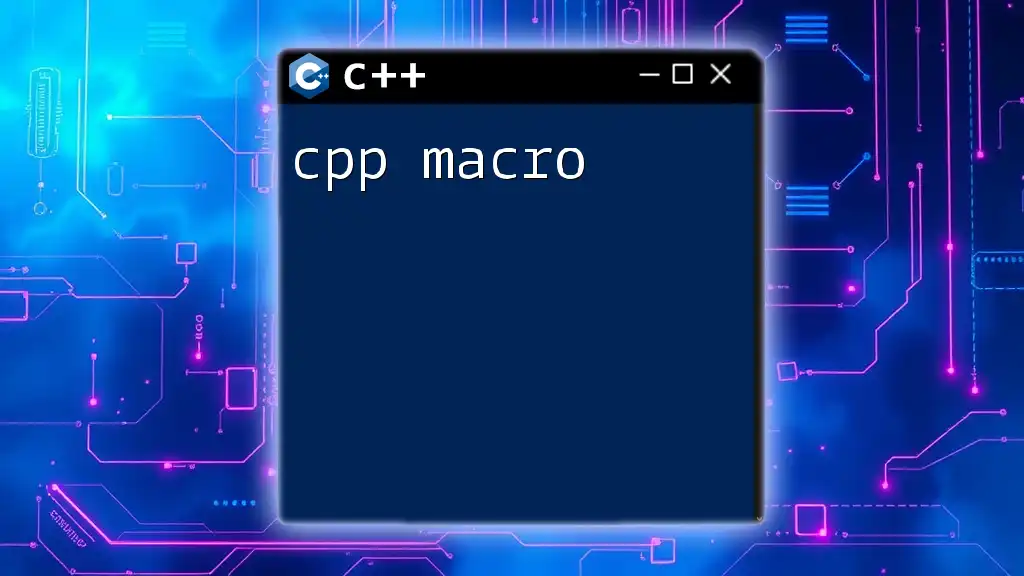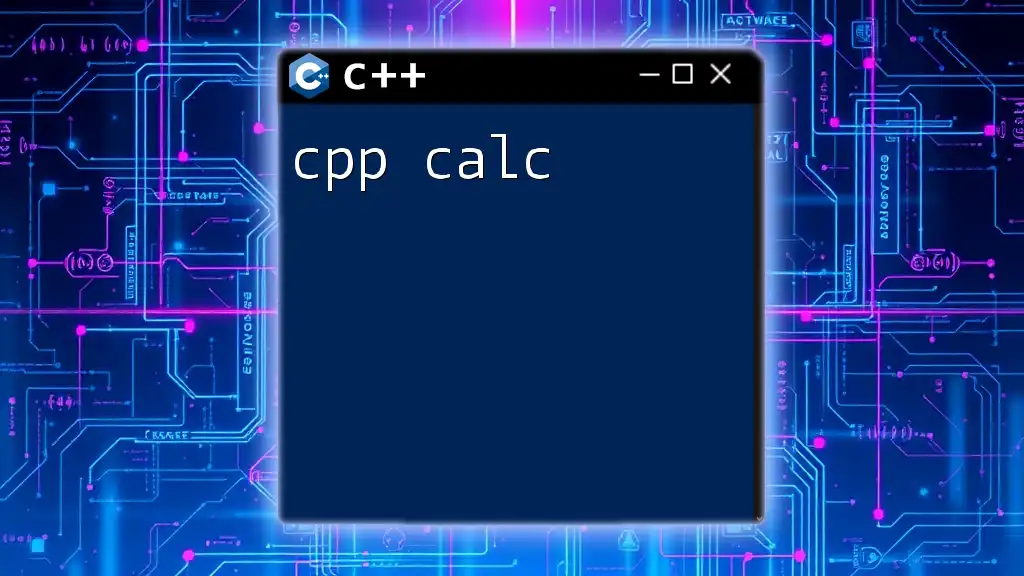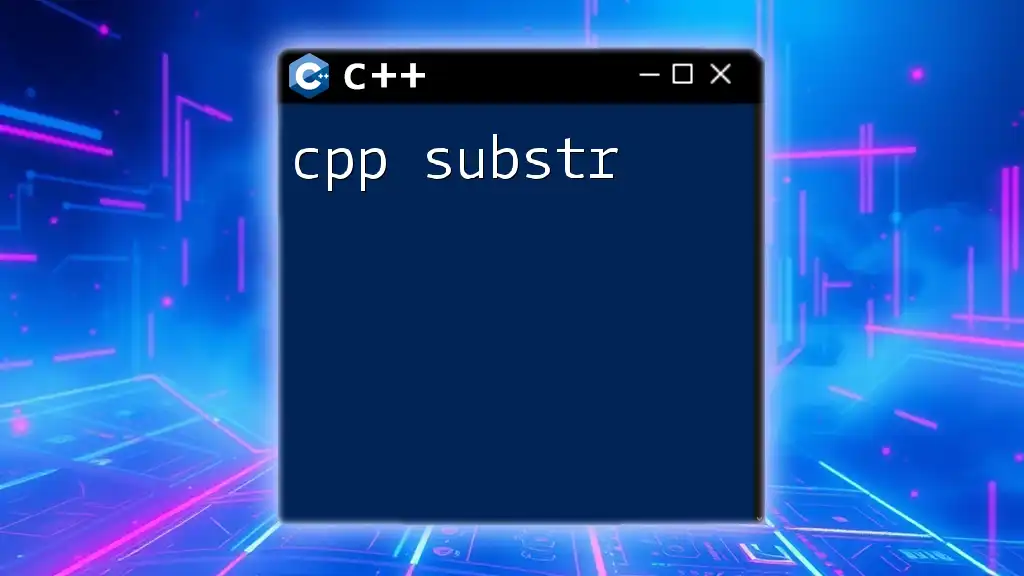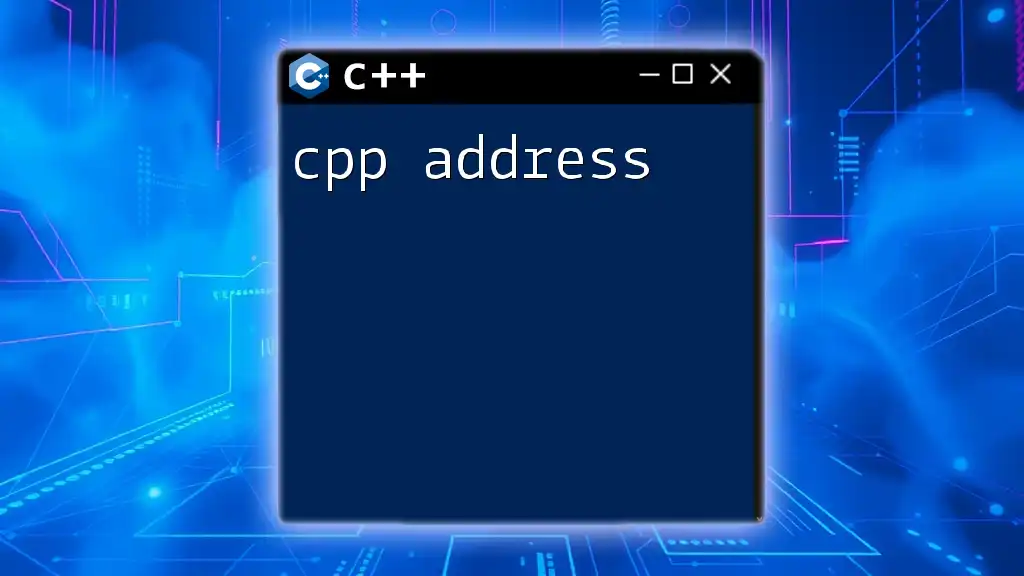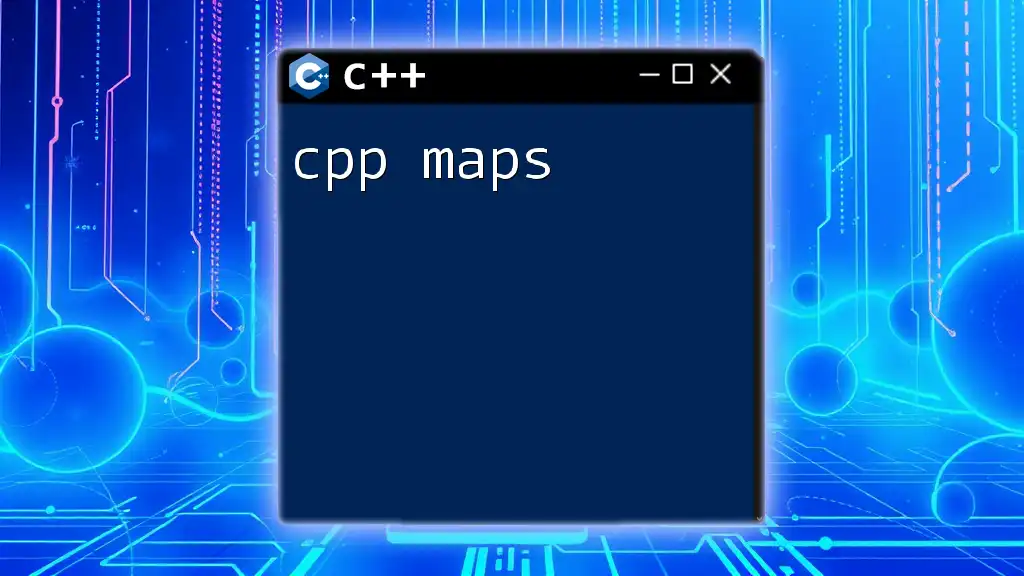A "cpp lab" refers to a practical environment where learners can experiment with and apply C++ commands effectively.
Here’s a simple code snippet to demonstrate a basic "Hello, World!" program in C++:
#include <iostream>
int main() {
std::cout << "Hello, World!" << std::endl;
return 0;
}
Understanding C++ in a Laboratory Context
What is a C++ Lab?
A C++ Lab serves as an environment designed specifically for learning and experimenting with C++ programming. Its primary purpose is to provide hands-on experience that enhances theoretical knowledge. This setting allows learners to apply principles in real-time, bridging the gap between classroom instruction and practical application. Unlike traditional learning methods that often focus on lectures and theory, a C++ lab emphasizes interactive learning, enabling students to engage directly with programming tasks.
Setting Up Your C++ Lab Environment
To maximize your learning experience, it’s essential to have a well-configured environment. Here are key components to get started:
-
Compilers: The fundamental tool for translating your C++ code into executable programs. Notable options include:
- GNU Compiler Collection (GCC): A versatile compiler that supports multiple programming languages.
- Microsoft Visual C++: A popular choice for Windows development.
-
IDE Options: Integrated Development Environments (IDEs) facilitate coding, debugging, and project management. Some recommended IDEs are:
- Code::Blocks: An open-source IDE that supports various compilers.
- Visual Studio: A comprehensive IDE providing extensive features for Windows-based development.
Setting up your environment typically involves downloading and installing your chosen compiler and IDE, followed by configuring them for C++ development. Here’s a quick setup guide for GCC on a Linux system and Visual Studio on Windows:
-
Installing GCC on Linux:
sudo apt update sudo apt install build-essential -
Setting Up Visual Studio on Windows:
- Download Visual Studio from the official website.
- During installation, select the "Desktop development with C++" workload to install the necessary components.
This setup ensures that your C++ Lab is ready to go, allowing you to run and debug code efficiently.

C++ Lab Structure and Common Practices
Lab Organization
An effective C++ Lab session should be structured to promote both theoretical understanding and practical application. A recommended organization includes:
-
Theoretical Introduction: Begin with a brief overview of the topic or concepts you will be exploring, ensuring that all participants have a common understanding.
-
Practical Exercises: Allocate the majority of the session to hands-on activities. This approach fosters engagement and solidifies learning.
-
Time Allocation: Ideally, balance your session with 30% theory and 70% practice to maximize productivity.
Essential C++ Commands to Master
A thorough grasp of C++ fundamentals is crucial for lab success. Here are essential commands to focus on:
Basic Commands
-
Input/Output: Learn how to interact with users through `cin` for input and `cout` for output. For example:
#include <iostream> int main() { int number; std::cout << "Enter a number: "; std::cin >> number; std::cout << "You entered: " << number << std::endl; return 0; } -
Control Structures: Understanding `if-else`, `switch-case`, and loops (for, while) is essential. An example using an `if-else` statement:
if (number > 0) { std::cout << "Positive number" << std::endl; } else if (number < 0) { std::cout << "Negative number" << std::endl; } else { std::cout << "Zero" << std::endl; }
Intermediate Commands
-
Functions: Creating reusable blocks of code improves clarity and maintainability. For instance:
int factorial(int n) { return (n <= 1) ? 1 : n * factorial(n - 1); } int main() { std::cout << "Factorial of 5: " << factorial(5) << std::endl; return 0; } -
Data Structures: Arrays, vectors, and strings form the backbone of data handling in C++. Here’s how to declare and manipulate an array:
int numbers[] = {1, 2, 3, 4, 5}; for (int i = 0; i < 5; i++) { std::cout << numbers[i] << " "; } std::cout << std::endl;
Advanced Commands
-
Object-Oriented Programming: Classes and objects provide a way to structure code around real-world concepts. An example of a simple class:
class Dog { public: void bark() { std::cout << "Woof!" << std::endl; } }; int main() { Dog myDog; myDog.bark(); return 0; } -
Exception Handling: Robust programs manage errors gracefully using try-catch blocks. For instance:
try { int num1 = 10, num2 = 0; if (num2 == 0) throw std::runtime_error("Division by zero!"); std::cout << num1 / num2; } catch (const std::exception &e) { std::cout << "Error: " << e.what() << std::endl; }
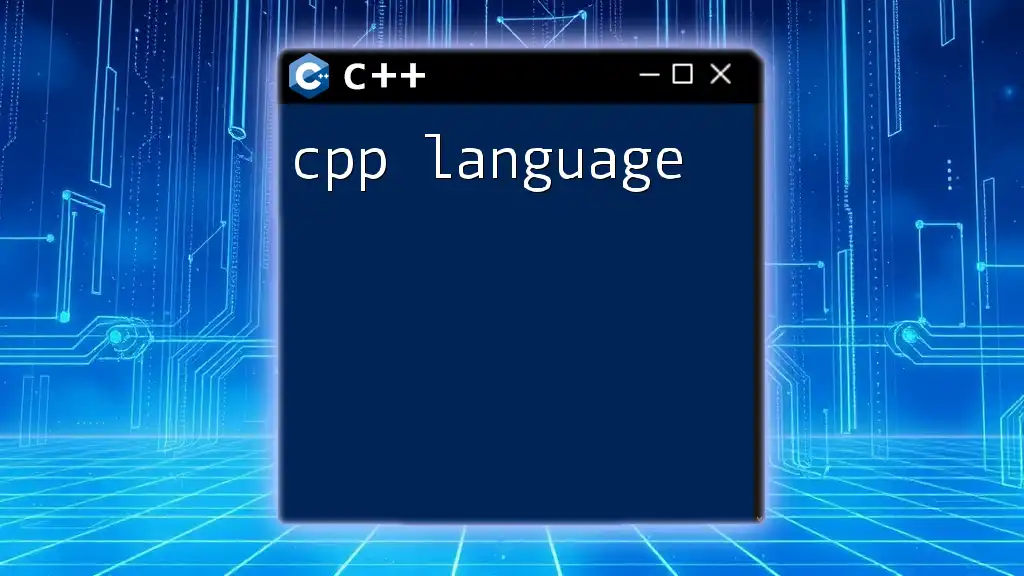
Practical Exercises in the C++ Lab
Exercise 1: Building a Simple Calculator
Objective: Create a program that performs basic arithmetic operations.
Expected Outcome: A functional calculator that prompts for two numbers and an operation.
Instructions:
- Use `cin` for input.
- Implement control structures for operation choice.
Here’s a basic implementation:
#include <iostream>
int main() {
double num1, num2;
char op;
std::cout << "Enter first number: ";
std::cin >> num1;
std::cout << "Enter second number: ";
std::cin >> num2;
std::cout << "Enter operator (+, -, *, /): ";
std::cin >> op;
switch(op) {
case '+': std::cout << num1 + num2; break;
case '-': std::cout << num1 - num2; break;
case '*': std::cout << num1 * num2; break;
case '/':
if(num2 != 0)
std::cout << num1 / num2;
else
std::cout << "Division by zero error!";
break;
default: std::cout << "Invalid operator!";
}
return 0;
}
Exercise 2: Creating a Basic Guessing Game
Objective: Develop an interactive game where the user guesses a number.
Expected Outcome: A game that provides feedback on the user’s guesses.
Instructions:
- Generate a random number.
- Take user input and compare it.
Implementation example:
#include <iostream>
#include <cstdlib>
#include <ctime>
int main() {
srand(static_cast<unsigned int>(time(0))); // Seed for randomness
int randomNumber = rand() % 100 + 1; // Number between 1 and 100
int guess;
do {
std::cout << "Guess the number (1-100): ";
std::cin >> guess;
if (guess > randomNumber) {
std::cout << "Too high! Try again." << std::endl;
} else if (guess < randomNumber) {
std::cout << "Too low! Try again." << std::endl;
}
} while (guess != randomNumber);
std::cout << "Congratulations! You guessed the number." << std::endl;
return 0;
}
Exercise 3: Data Structure Manipulation
Objective: Practice working with arrays and implement sorting.
Expected Outcome: A program that sorts an array of integers.
Instructions:
- Populate an array with integers.
- Implement a sorting algorithm.
Here’s an example using the bubble sort algorithm:
#include <iostream>
void bubbleSort(int arr[], int n) {
for (int i = 0; i < n-1; i++) {
for (int j = 0; j < n-i-1; j++) {
if (arr[j] > arr[j+1]) {
std::swap(arr[j], arr[j+1]);
}
}
}
}
int main() {
int arr[] = {64, 34, 25, 12, 22, 11, 90};
int n = sizeof(arr)/sizeof(arr[0]);
bubbleSort(arr, n);
std::cout << "Sorted array: ";
for (auto num : arr) std::cout << num << " ";
return 0;
}
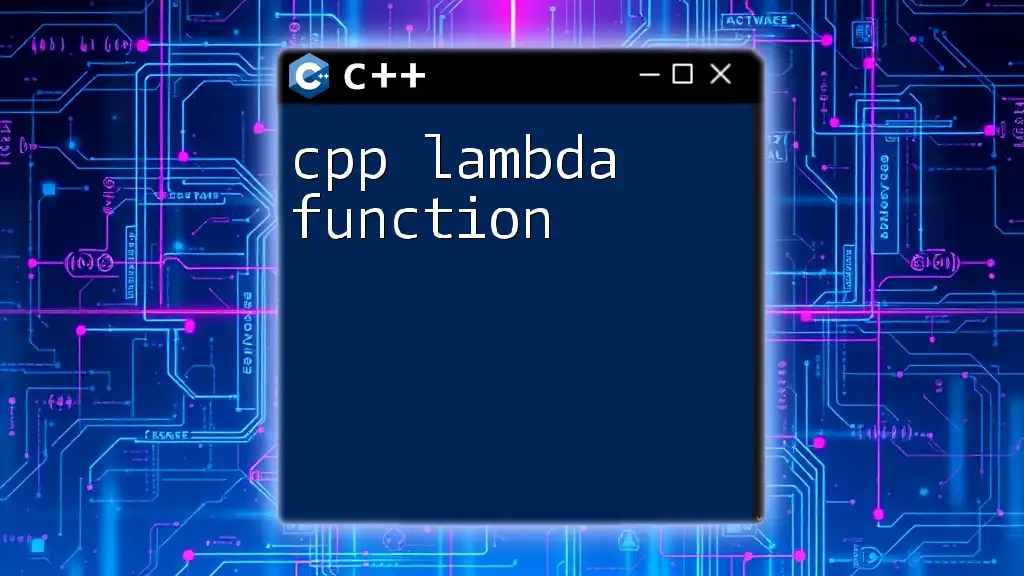
Best Practices for Learning C++ in Lab Settings
Tips for Effective Learning
To optimize your learning experience in the C++ Lab, consider these best practices:
- Regular Practice: Engage consistently in coding outside of lab sessions. Practice makes perfect.
- Documentation: Always comment your code. Document any new concepts you learn to enhance retention.
- Peer Engagement: Collaborate with fellow learners, sharing insights and solving problems together. Community learning can accelerate your growth.
Common Mistakes to Avoid
As you dive into your C++ Lab, be mindful of these pitfalls:
- Not Writing Enough Code: Relying solely on theory can hinder your ability to apply what you’ve learned. Get coding!
- Ignoring Error Messages: Instead of glossing over errors, use them as learning opportunities to improve your debugging skills.
- Skipping Documentation: Neglecting comments and documentation can lead to confusion later. Always document your code.
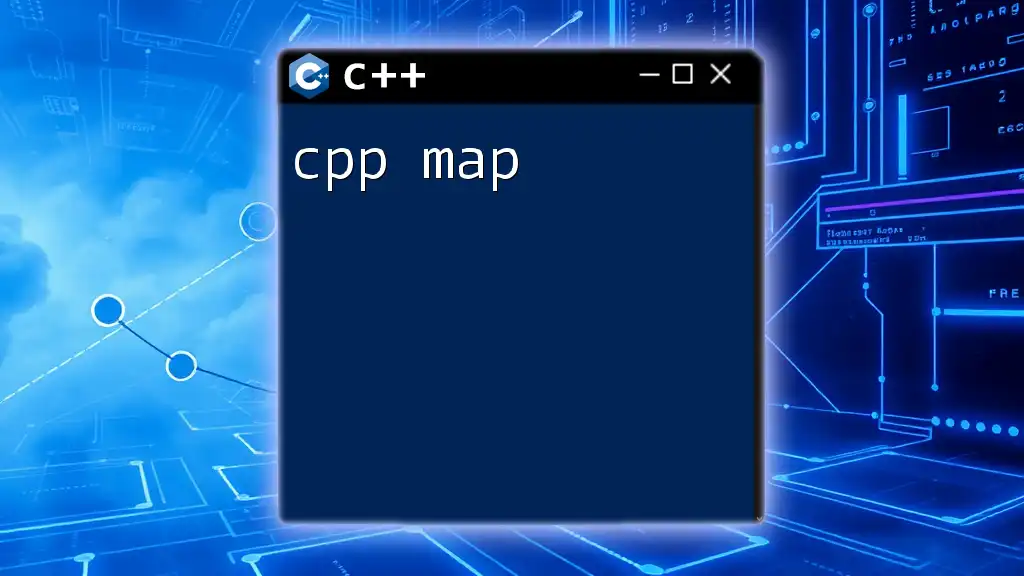
Resources for Further Learning
Recommended Books and Online Courses
To further enhance your knowledge, here are some valuable resources:
-
Books:
- "C++ Primer" by Stanley B. Lippman
- "Effective C++" by Scott Meyers
-
Online Courses: Look for C++ courses on platforms such as Coursera, Udacity, and edX that provide structured learning experiences.
Community and Forums
Engaging with the community can provide invaluable support. Consider participating in forums like Stack Overflow and Reddit’s r/cpp for advice, discussions, and updates on C++ programming.
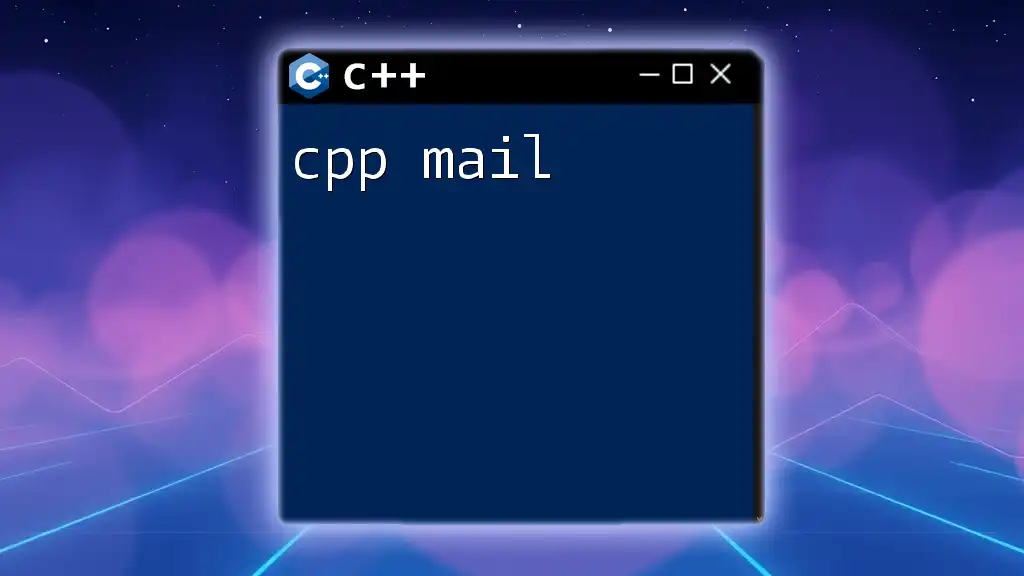
Conclusion
The hands-on experience provided by a C++ Lab is essential for mastering the language. Practical exercises and direct application of concepts solidify understanding and build confidence in programming skills. Embrace the lab methodology to effectively learn and enhance your C++ expertise.
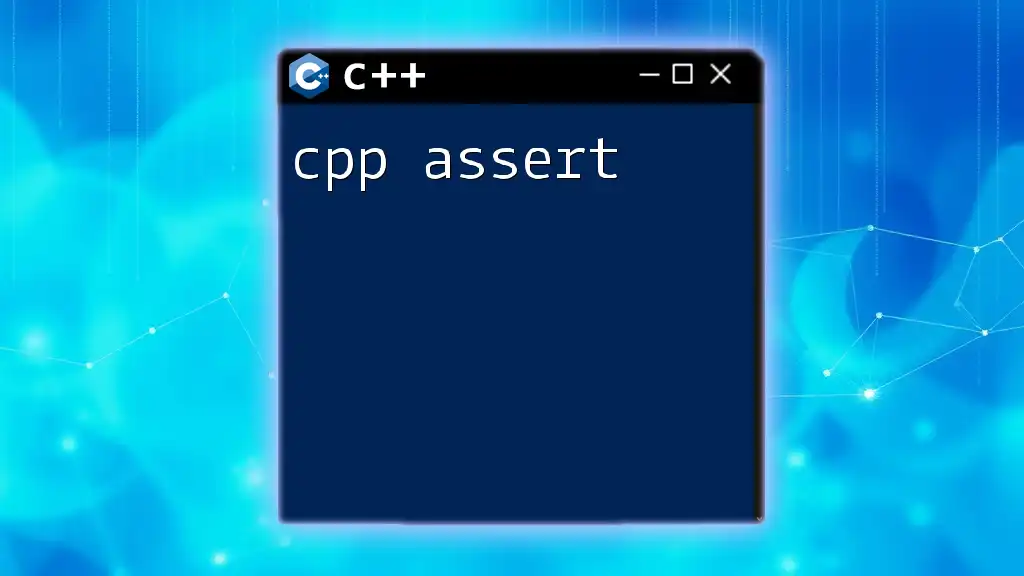
Call to Action
We encourage you to share your experiences and thoughts on C++ labs and how they have impacted your learning journey. Additionally, consider joining our community for a dynamic and interactive learning environment!

